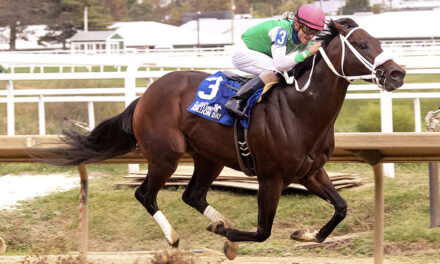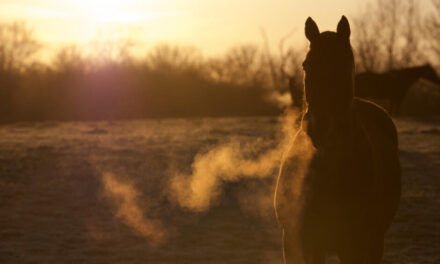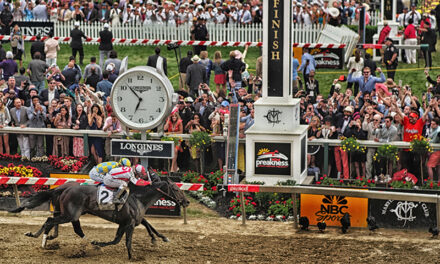by Jane Seigler, MHC Government Relations Committee Co-Chair (first published in the September 2023 Equiery)
You might be forgiven if you imagine that your Government Relations Committee, with the State Legislature out of session since April, has been sitting by the pool drinking margaritas all summer. You might be forgiven – but you’d be wrong! We have, in fact, been hard at work plowing the lobbying fields and planting the seeds of future legislative successes.
On Saturday, July 8, in response to our invitation, three state legislators spent the day with us at the Maryland International 4* at Loch May Farm in Adamstown. Del. Natalie Ziegler, (HoCo & MoCo), (Environment & Transportation Committee), and Del. Chao Wu (HoCo & MoCo), (Ways & Means Committee) had no prior exposure to eventing and were blown away by the beauty of the venue and the horses, and the excitement of the competition. Sen. Malcolm Augustine (PG), who is the President Pro Tem of the Maryland Senate and who sits on the important Education, Energy, and Environment Committee, brought his entire family, including his two teen-aged daughters, who are both hunter/jumper riders. We had a chance to talk to each of them about the importance of the horse industry and the equestrian community to Maryland’s history, culture and economy. Each of Del. Ziegler, Del. Wu, and Sen. Augustine asked us, “How can the legislature help?”
On July 28, we took Sen. Augustine up on his offer and had an hour-long meeting with him about a wide range of topics important to the horse industry. We said we needed a new horse census to gather accurate, current data on the number of horses Maryland, as well as demographic data about the equestrian community. We discussed workforce issues to meet the perennial need for skilled labor in the horse industry, and Sen. Augustine offered to help us add equine trades to Maryland’s “2030 Apprenticeship Commission,” which is working to expand access to vocational programs in Maryland. We discussed the challenges that competition venues face finding funding for capital projects, and we discussed the need for operating support for those state-wide non-profit organizations that provide services to the State. We discussed potential sources of revenue for some of these ideas, such as hotel occupancy taxes generated by tourism brought in by the horse industry, and a potential revenue-generating “Maryland Horse” license plate. He asked us to arrange a meeting with Maryland Secretary of Agriculture Kevin Atticks to discuss ways the General Assembly can help the equine sector of agriculture meet the State’s policy objectives of preserving open space and protecting the Chesapeake Bay.
On August 3, we continued our discussions about funding for the horse industry in a meeting with the powerful Chair of the Maryland Senate’s Budget & Taxation Committee, Sen. Guy Guzzone (HoCo). We covered much of the same ground as we did with Sen. Augustine, but we also explained that the non-racing sectors of the horse industry generate 75% of the industry’s economic impact on the state which, in turns, helps us support the racing industry. We explained that any re-development or renovation of the Pimlico or Laurel racetracks should include facilities for other equestrian activities, such as urban therapeutic riding centers and multi-disciplinary competition venues in the infield. We explained that 25% of all agricultural land in Maryland is in horse farms and that well-maintained pastures are second only to forest in good condition for carbon capture and nutrient management. In light of that, Sen. Guzzone said he could support the idea of a dedicated horse industry revenue stream such as from a special license plate. At the end of the meeting, he said would like to help the non-racing sectors of the horse industry and he asked us to send an itemized list of requests.
We had two other meetings with the state in July about topics other than funding. On July 13, we spent several hours with the Chair of the Department of Natural Resources’ (DNR) Wildlife Advisory Commission, Carl Wagner. Wagner had requested the meeting to learn more about the horse industry’s concerns over shared use of state lands, including sharing the lands with bikers and hunters. The Chair’s daughter is an event rider, and he emphasized that he is committed to finding a way to accommodate all user groups so that everyone feels equally comfortable and safe on DNR land. DNR has generated $8 million in fees from hunting licenses and he asked what he could use that money for to help the trail riding community. We agreed to prepare a horse industry wish list for managing the trail system and mitigating user conflicts in the parks. We are in the process of preparing that document.
Lastly, on July 24, we met with Sen. J.B. Jennings (Balt. & Harford) and Del. Mary Lehman (PG & AA) about the helmets-for-minors bill that failed to pass last year. Del. Lehman sponsored the bill and Sen. Jennings raised a last minute question that resulted in the bill running out of time to pass the Senate. The bill was originally drafted to apply to public land only, but was amended to apply to “recreational, educational, or competitive” facilities. In the meeting, Sen. Jennings said he was concerned that the amended bill could be construed to apply to someone riding their own pony in their own back yard. We explained that the intent of the bill was to make sure that places like lesson barns, which are typically privately owned, would be covered. We suggested that we replace the language that concerned him with language that already exists in the law that defines which stables must be licensed by the state, i.e., any barn that “solicits or offers” riding services “to the general public”. Both Sen. Jennings and Del. Lehman were comfortable with that, and the bill will be reintroduced next session.
In addition, we have been working on generating info-graphics and data summaries to build on the success of the county-by-county data sheets that we prepared for Horse Industry Day in February. We are now working on data sheets for individual disciplines, horse rescues and horse sanctuaries, equine-assisted services programs, the lesson barn sector, individual breeds, and any other topic that we want the General Assembly to understand. You can find copies of these and other materials on the Educational Resources page on our new website: https://mdhorsecouncil.org/educational-resources/.
That’s what we’ve been doing. Here’s what you can do to help.
If you haven’t already, please fill out the https://horsecouncil.org/economic-impact-study/American Horse Council’s national economic impact study. There will be a special breakout study for Maryland, which the industry has paid for, so please add your info to make sure we have the most accurate data possible. There are two separate surveys, one for horse owners, and one for horse business owners. These data will help us continue to make the case that the horse industry has a substantial economic impact on the state and is therefore as deserving of some additional state support of the kind the state already affords to other sports.
Please also fill out our own state park trails survey. DNR has asked us to provide feedback on what we like and don’t like about riding on state lands, so please fill it out if you ride in state parks. These data will help us keep equestrian trails issues front and center with DNR. QR code for the trails survey is on the left.
As you can see, we are all warmed up and will be galloping into the busy Fall pre-Session legislative fundraising season. We have already attended several fundraisers this summer, and will soon be getting barraged with invitations. Our appearance at these fundraisers is important and very helpful in establishing positive relationships with legislators. Please help us make sure we can take advantage of these networking opportunities. Make a contribution of any amount to our Political Action Committee. If you would like to attend a fundraiser for your own legislator, let us know! admin@mdhorsecouncil.org. Donate to the PAC here!












